
Photo credit: Chris Montgomery – unsplash
By Debbie Burke
Have you ever wanted to chat with the Crime Dogs at The Kill Zone?
Now, your book club, reading or writing group can meet with TKZ authors via Zoom, Facetime, Google Meeting, or Splash.
To give you hints what they might talk about at a virtual meeting, I posed two questions to each member.
#1 – When you’re invited to speak, what do you plan to say?
I accept!
Actually, I would discuss the steps that a writer goes through after finishing their manuscript and before being published.
#2 – What would you like listeners to learn from you?
That they probably should have asked someone else! Seriously, I would hope they would come away encouraged, rather than discouraged. While the process of publishing seems overwhelming, people still do it.
(BTW, we’ve asked Joe to leave his big knife at home when he zooms.)
~~~
Sue Coletta:
Most readers ask about the story behind the story, my characters or subjects (if nonfiction), research, and male vs. female serial killers. I also touch on forensic science (i.e. blood spatter analysis, decomposition, handwriting analysis, forensic psychology, the difference between a psychopath, sociopath, spree killer, etc. The seven stages of serial killing is a big hit, as it allows readers to peek into a killer’s mind. The psychology behind these monsters is a fascinating topic.
For writers: how to create believable characters, show vs. tell, understanding deep point of view, story structure, how to use research without slowing the pace. Also, my experience working with publishers.
Most of all, I want attendees to have fun. Laughter is good for the soul.
~~~
I have several “canned” presentations that are fully described here, but I tailor every presentation to the individual audience. I’ve been doing this for over a quarter of a century, so I can discuss everything from character development to finding an agent to adapting stories for the screen. I’ve done full day seminars and I’ve done 20-minute chats.
I start every presentation by asking attendees what they want to take away from the seminar/meeting. In my experience, people who attend these kinds of presentations have one or two very specific itches that they’d like to have scratched, and my job is to scratch them.
~~~
Most often my presentations start off with the history that inspired my stories and, depending on the audience, delve into my own personal connection to the events or characters in the book. Rarely do I go into the actual writing process but this is often a question I get asked so that’s when it comes up. I want listeners to come away inspired – either by history, reading, or to write their own stories.
~~~
I speak on any of the 7 critical success factors of fiction: plot, structure, character, scenes, dialogue, voice, meaning.
Fiction writing can be learned, if one studies diligently and keeps practicing.
~~~
I’m flexible with what I’ll talk about. If it’s a writer’s group, I can talk about craft, including dialogue, point of view, voice, writing romantic suspense, or just the writing process. I can also share my experiences with small presses, digital presses, and independent publishing.
Book clubs are usually a whole different game, with them wanting to talk about specific books or series, or just general Q&A.
~~~
Garry Rodgers:
From my experience it’d be “talk about what you know.” Mine is crime, forensics, and death investigation and the worlds around them. My schtick would be about Joseph Wambaugh’s saying, “The best stories aren’t about how cops (and coroners) work on cases – it’s how the cases work on cops (and coroners).”
I see it from the reality human angle rather than the non-reality TV CSI stuff.
~~~
My subject would be “Heritage, Writing, and Leaving a Legacy.” The discussion would center on the importance of passing on (in writing) to our descendants what we have learned from our ancestors – history, service, and values.
I would like to convince listeners that “passing the torch” is important, and maybe inspire some young people to become interested in writing.
I added a category: Who is my desired audience? Middle Grade Schools, High Schools, Parochial Schools, Christian Schools, Home School Groups, Senior Citizen Groups, and Writers’ Groups.
~~~
My talks are tailored for the audience. If you want to be entertained, I talk about my light-hearted Dead-End Job mysteries. If the audience likes darker mysteries, I discuss my Angela Richman, Death Investigator mysteries. Death investigators are like paralegals for the medical examiner. They are in charge of the body and work for the ME.
I’ve also taught workshops and seminars for Sisters in Crime, MWA, and the Florida Writers Academy and other groups. Topics include: “Forensics for Mystery Writers.” “How to Murder Your Darlings — editing for writers.” “Who’s Talking? What voice is best for your novel?” and “Mystery Writing for Beginners.” All workshops come with handouts.
I’d like all my audiences to come away entertained, and if they’re taking a workshop, to leave it energized and ready to write.
~~~
 P.J. Parrish (Kris Montee):
P.J. Parrish (Kris Montee):
The need to learn your craft and have patience, especially if you self-publish. A book that’s put out in public before it’s professionally ready will fail.
Perseverance. I’ve run the full gamut of publishing with huge NY legacy publishers, paperback imprints, foreign publishers, and Amazon’s Thomas and Mercer. I changed genres from romance to mysteries, reinventing a stalled career. I regained backlist rights and self-published them, also self-published an original series. Lots of success (bestseller lists and awards) and plenty of failure, but you keep going! You have to have a hard shell, lots of drive, and you can’t let the suckers get you down!
Topics I like to talk about: The difference being showing and telling. Making your settings/locations come alive. Series vs standalones.
~~~
For writing groups—how to edit your own writing, how to survive rejections and keep writing, traditional publication vs. self-publication, tapping the subconscious for stories, confessions of a pantser.
For book clubs—A peek inside the warped mind of a writer. Behind the scenes anecdotes. How does a nice girl like me write such nasty villains? What does an author do when characters won’t behave?
~~~
How do you set up a virtual meeting with a TKZ author? It’s easy!
At the top of the screen on the left side of the menu banner, click on “Request a TKZ Speaker.” Fill out the form and hit submit. We’ll be in touch.
We look forward to “seeing” you for a virtual chat!

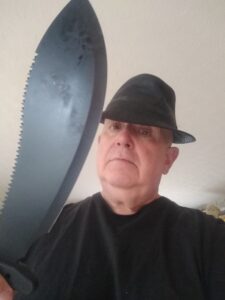
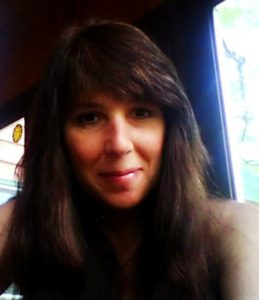




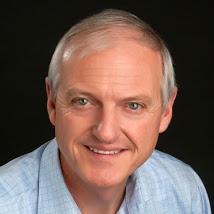
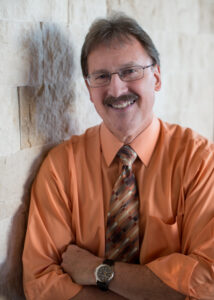
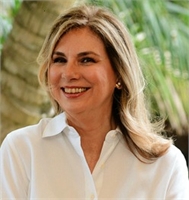

One of the view good things about Covid Hell is virtual conferences. Between my job and my hubby’s health of late it’s near impossible for me to travel. I’ve been able to virtually attend two very good writer’s conferences lately and I am grateful.
You all need to get together and put on your own virtual conference. It would be killer.
Virtual meetings are indeed the silver lining of the pandemic, Cynthia. I’ve chatted with people in different countries and connected with new readers in distant locations. It’s great fun.
Hmmm, a TKZ virtual conference? I’ll pass your recommendation on to the honchos.
Wishing improved health to your husband.
Thanks for putting this together, Debbie! We crime dogs appreciate it 🙂
You’re very welcome, Garry. Didja notice the sneaky way I got you guys to write this post for me?
Kidding aside, this opens new opportunities for readers as well as for us as authors. Eager to see where this goes.
You’re most welcome, Garry. Didja notice the sneaky way I got all of you to write this post for me?
Kidding aside, this feature opens new opportunities for readers as well as for us as authors. Eager to see what develops.
Excellent job putting this together, Debbie. Thank you!
I like the idea of a TKZ virtual conference.
It was fun, Sue.
I nominate you for conference chair LOL.
Thanks for putting this together, Debbie. I’m impressed. And thanks for your help here at TKZ in so many other ways.
We all help each other in The Zone, Steve.
Thanks for this, Debbie. Thanks also for using that picture of me–the one that shows more pepper than salt in the beard.
John, I always knew you were a peppery guy.
Thank you, Debbie, for all of your hard work on this.
One thing…um…my machete is at home, and I Zoom from home…so…I’ll promise not to brandish it….
Joe, I’m relieved you’ve promised to behave yourself on Zoom.
Don’t ever tell Hartlaub to cut his talk short.
Bada-boom! Good one, Jim.
Thanks, Debbie! You are all soooooo entertaining!
I want to be like y’all when I grow up. 🙂
Deb, where did you get the idea we’re grownups???
Haha! 🙂
Thanks for the great information, Debbie. And thanks to all the TKZ contributors. I’m going to share this with my book club and writers group here in Memphis.
Thanks, Kay. Fun to “meet” you at the Authors of the Flathead zoom meeting a couple of weeks ago.
The photo you posted of me and my doggie was bittersweet. Bailey the Wonder Dog passed on last year. But she had a good and looong dog-life. Almost 18 years old and eating a biscuit as she departed the earth. Thanks for setting our bureau up and looking forward to talking to our crime dogs out there.
Sorry about Bailey, Kris. From the photo, it’s easy to see he was one happy dog living the good life!
The speakers bureau was Kathryn Lilley’s brilliant idea. She’s doing the heavy lifting of setting up zoom accounts. Thanks, Kathryn!